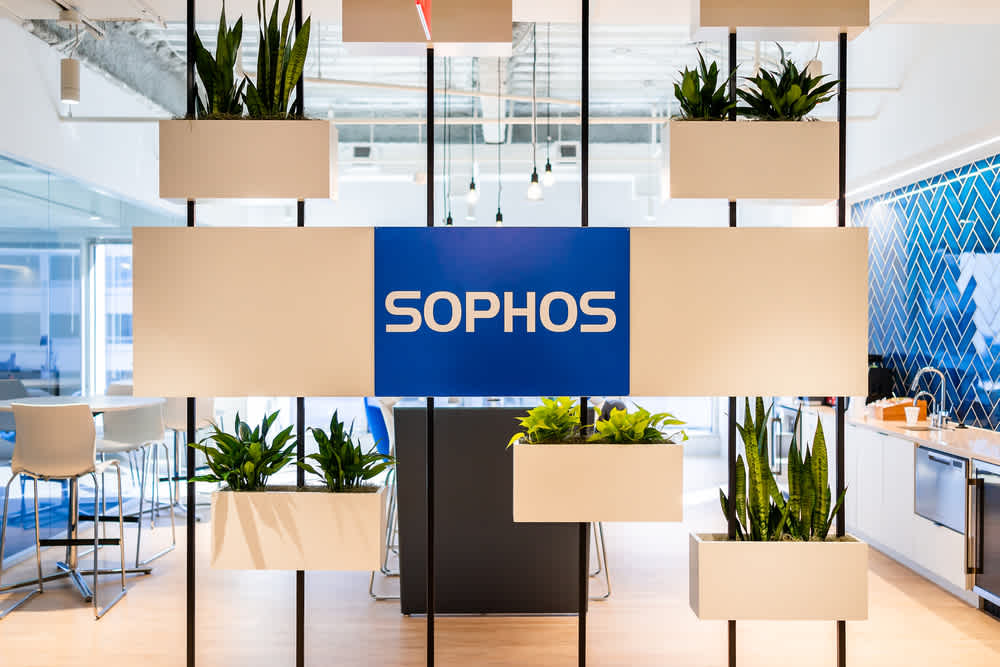GRTech
Sophos is a Leader in the IDC MarketScape for Worldwide Modern Endpoint Security for Midsize Businesses in 2024
Reporter: SANDRA ANI


Sophos, a global leader in innovating and delivering cybersecurity as a service, has announced its recognistion as a Leader in the IDC MarketScape: Worldwide Modern Endpoint Security for Midsize Businesses 2024 Vendor Assessment, which evaluates the solutions and business strategies of 16 modern endpoint security (MES) vendors.
Sophos Endpoint defends more than 300,000 organizations worldwide against advanced attacks with anti-ransomware, anti-exploitation, behavioral analysis, and other technologies that stop threats before they escalate. In the report, IDC applauds Sophos Endpoint for including “a more expansive set of protection technologies (host-based firewall and IDS/IPS, device control, DLP, and encryption) as standard features in its endpoint security offering.”
In addition, “in the discipline of systematically strengthening customers’ security posture, Sophos has a strong set of features in customer security advisory recently enhanced with an account health-checking feature (detecting and remediating security configuration drift).”
The report also praises Sophos for adding “several new capabilities: adaptive attack protection, critical attack warning and data protection and recovery” to further mitigate risks.
With an extensive and expanding range of integrated capabilities spanning protection, detection, response, and recovery, Sophos Endpoint seamlessly integrates with other vendors’ and Sophos products including Sophos Managed Detection and Response (MDR), the most widely used MDR offering. Sophos Endpoint is also the foundation for Sophos Extended Detection and Response (XDR) and Sophos Endpoint Detection and Response capabilities (EDR).
“We’ve strategically engineered our products and services to work together and with third-party systems to create comprehensive, preventive and highly actionable defenses,” said Rob Harrison, senior vice president of product management at Sophos. “We’re also committed to innovation, which is critical for consistent protection against aggressive and determined cybercriminals. Sophos Endpoint protections, specifically Sophos Intercept X, continue to be recognized as industry-leading, which reflects our innovative approach to developing defenses against the latest and anticipated attacker tactics, techniques and procedures, including the recent increase in the deliberate use of remote ransomware to evade detection.”
“Adaptive attack protection, introduced in early 2023, is a demonstration of Sophos’ means to disrupt hands-on-keyboard attackers while minimizing potential disruption to legitimate operations. Tuned to detect attackers pivoting to more aggressive tactics, protection sensitivity is automatically elevated to prevent damage. Once the malicious activity is no longer present, normal protections are automatically reestablished. Sophos critical attack warning alerts security personnel when immediate attack responses are necessary. Responses, estate wide if warranted, can be orchestrated through Sophos MDR, incident response (IR) or XDR. The prevalence of ransomware attacks compels organizations to be prepared to recover,” said the IDC report.
“With their professional and managed security services, expanded product set, and ability to integrate with existing security investments, it’s clear that Sophos understands the needs and challenges of a midsize business,” said Michael Suby, research vice president, Security & Trust, IDC. “Sophos’s comprehensive approach from prevention through recovery places Sophos on the shortlist of midsize businesses looking for an established and effective partner for security.”
Managed in the cloud-native Sophos Central platform, Sophos’ portfolio solutions are part of the Sophos Adaptive Cybersecurity Ecosystem, where security data is collected, correlated and enriched with additional context to enable automatic and synchronized responses to active threats. This platform is further optimized by Sophos X-Ops threat intelligence, a cross-operational task force of more than 500 security experts within SophosLabs, Sophos SecOps and SophosAI.
-



 News4 days ago
News4 days ago‘You escape, or you die’: African men say Russia duped them into fighting in Ukraine
-



 Hospitality2 days ago
Hospitality2 days agoThe Nature Conservancy and FSC Africa Sign Strategic Partnership to Strengthen Sustainable Forest Management Across Africa
-



 Transport2 days ago
Transport2 days agoAkin Fadeyi Foundation unveils new advocacy campaign to curb road accidents
-



 Energy2 days ago
Energy2 days agoPayment Security Remains Biggest Barrier to Bankable Gas and Power Projects — FirstCap MD






